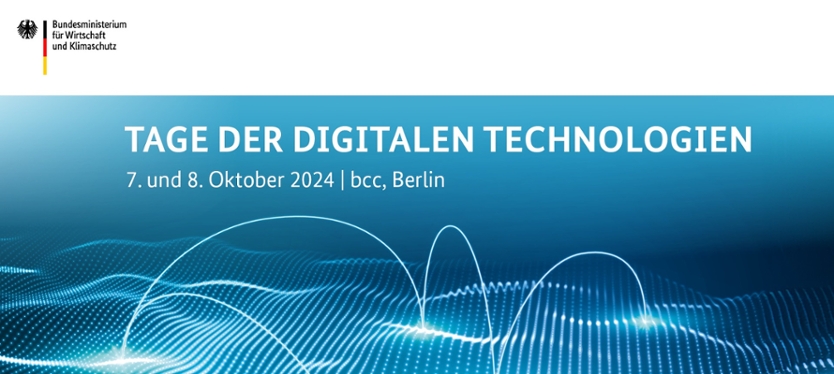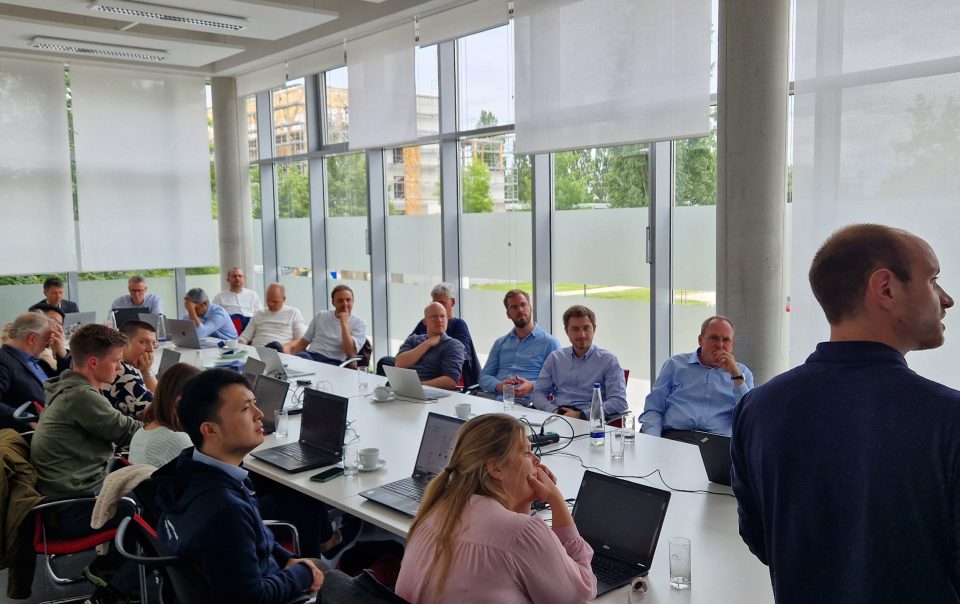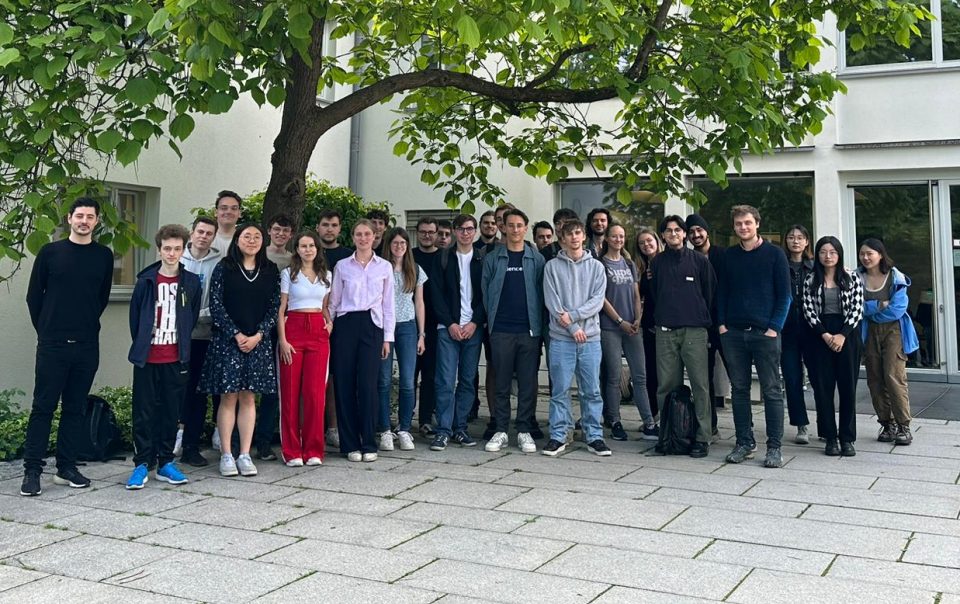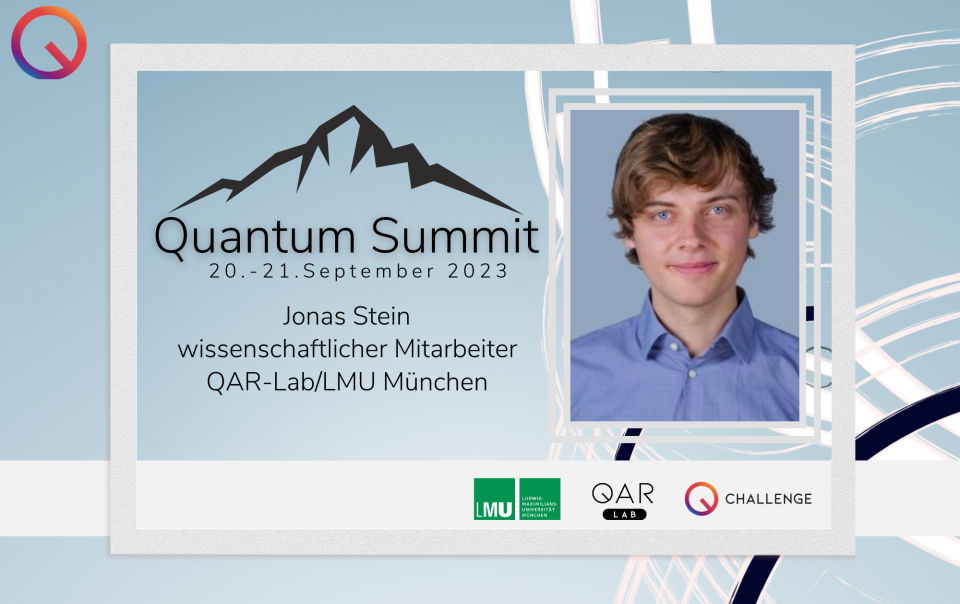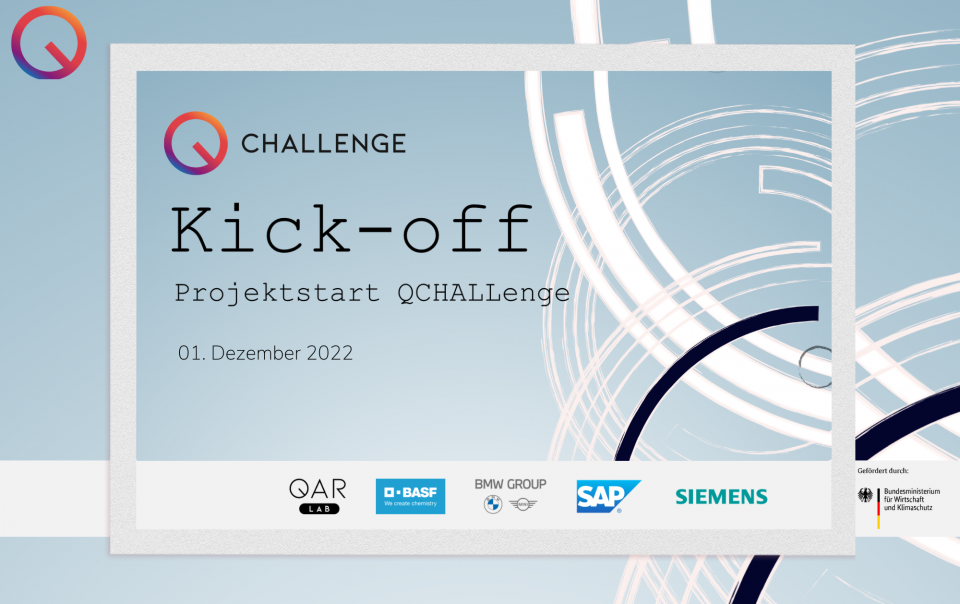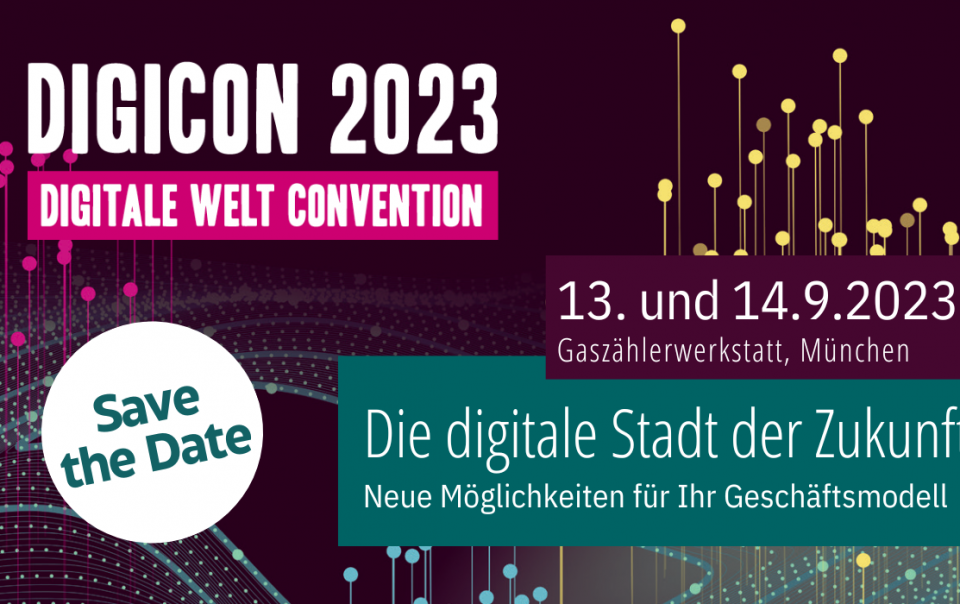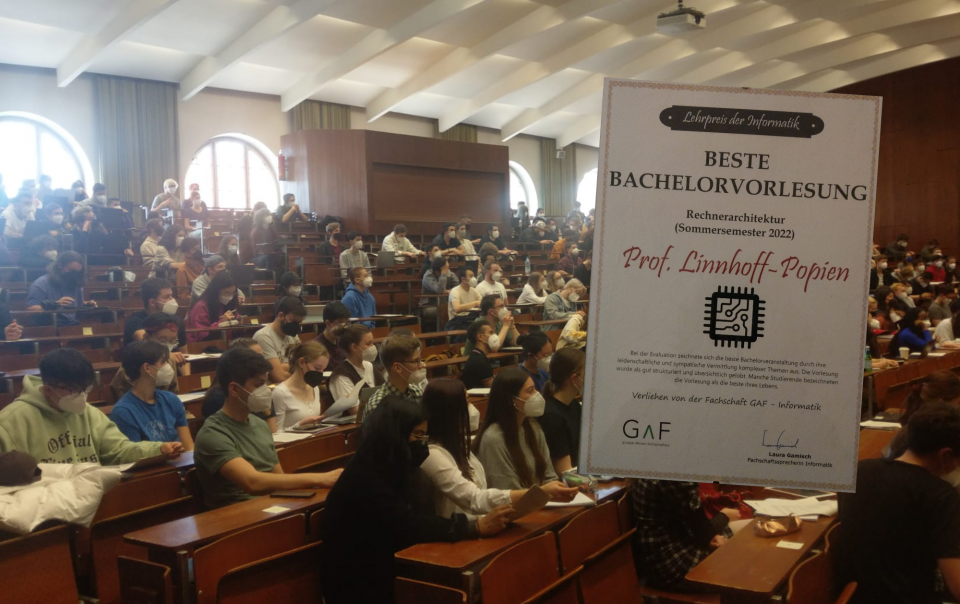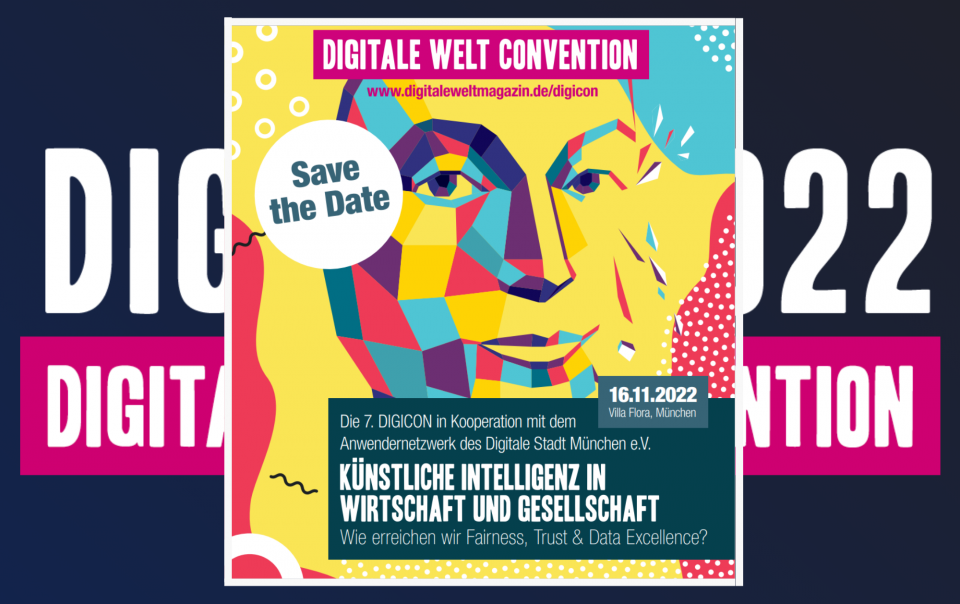QAR-Lab-EN
QCHALLenge Consortial Meeting 2024
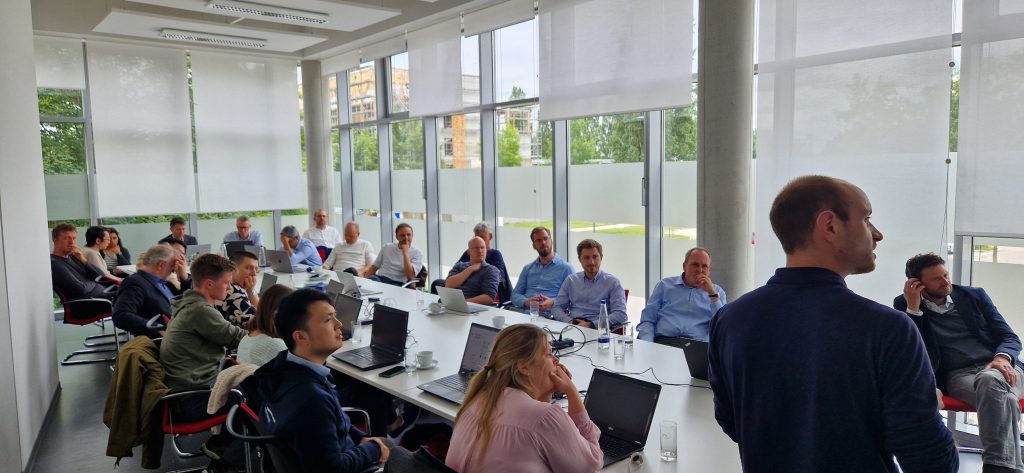
Exchange on the accomplished tasks and coordinating future efforts
(June 11, 2024/Garching) For our annual meetup more than twenty members of the consortium accompanied by the DLR got together for a full day workshop at the new Siemens campus in Garching near Munich to update each other on the current status of the project. Starting with internal kickoffs of work complexes 8 and 9, and continuing with an on premise tour of the LRZ Quantum Integration Center to get a feeling of qauntum hardware, the official part started after lunchtime and covered in-depth updates of the major work packages, including use cases, the software framework as well as fundamental reasearch on QML and decomposition techniques for quantum optimization.
After intensive technical discussions the workshop concluded in a positive outlook for the success of the project from all parties involved.
Kickoff 7th QC Optimization Challenge
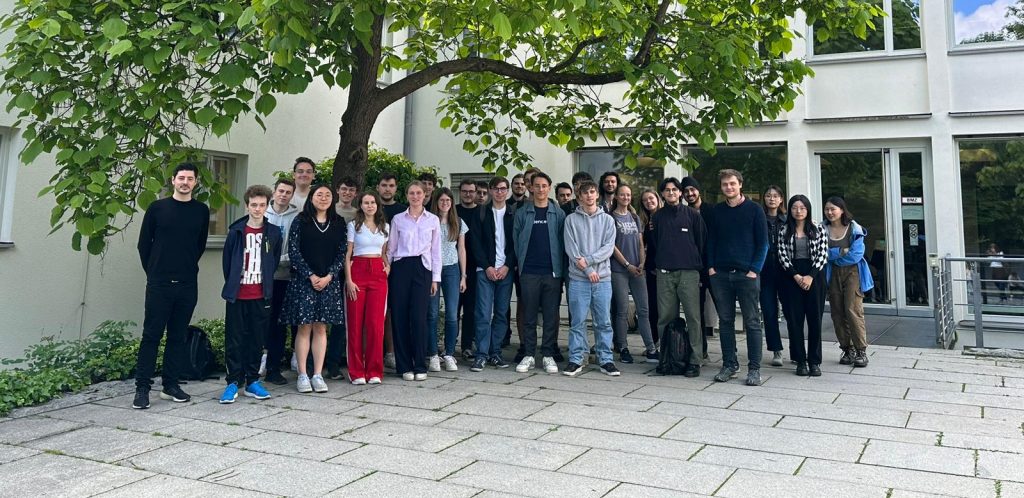
Students from the LMU Munich will provide valuable insights into possible Quantum Applications
(May 7, 2024/Munich) The practical course will provide the ability to model optimization problems for quantum computers, as well as an introduction to practical work with existing quantum computers. Four computers are currently available in the QAR Lab for this purpose: IBM Q System Two, IonQ Aria-2, Fujitsu DAU, D-Wave Advantage.
In cooperation with our industry partners BMW Group, SAP and Siemens projects with high relevance for concrete applications are calculated by our students on quantum computers in this semester. With the three use cases (1) Topology Optimization (BMW), (2) VM Balance Assignment (SAP), (3) Image Classification (SAP), (4) BnB hybrid Optimization (Siemens) and (5) Distribution Modelling (Siemens), the students will explore the main applications of quantum computing: machine learning, simulation and optimization.
We are pleased to make this possible for the 7th time and are looking forward to the results at the end of this semester.
About the QCP
The Quantum Computing Optimization Challenge is a practical course initiated by Prof. Dr. Claudia Linnhoff-Popien, head of the Chair of Mobile and Distributed Systems at LMU Munich. It took place for the first time in 2020 and has been an integral part of the curriculum ever since. This practical course teaches the ability to model optimization problems for quantum computers, as well as an introduction to practical work with existing quantum computers. Four computers are currently available for this purpose in the QAR Lab: IBM Q System Two, IonQ Aria-2, Fujitsu DAU, D-Wave Advantage. In cooperation with well-known partners from industry, tasks with strong relevance for practical applications are assigned each semester. The students have the opportunity to execute and compare one task on two computers. In the summer semester 2024, it takes place for the 7th time. Use cases in areas of optimization, machine learning and simulation are on the agenda.
Quantum computing: An outlook - How do experts assess the development?
 Hardly any other technology is currently raising such great expectations as quantum computing (QC). With the possibilities offered by quantum physics and the resulting enormous computing power, quantum computers can accelerate the development of medicines and vaccines, revolutionize materials research and optimize logistics chains, for example.
Hardly any other technology is currently raising such great expectations as quantum computing (QC). With the possibilities offered by quantum physics and the resulting enormous computing power, quantum computers can accelerate the development of medicines and vaccines, revolutionize materials research and optimize logistics chains, for example.
Over the last few decades, quantum computing has established itself as a new field of research. Since the mid-1990s, great progress has been made in the development of quantum hardware. The landscape of available quantum or quantum-inspired computers is rapidly evolving into a diverse collection of systems with different strengths and weaknesses. The potential of this technology is undoubtedly great, which is why more and more companies are trying to be among the innovators in this field. The aim is to make the so-called quantum advantage economically viable for their own company in order to gain a competitive advantage over the competition. This is a decisive success factor, particularly in view of saturated markets in many sectors and an oversupply of new competitors entering the market. New, forward-looking and innovative technologies are intended to leave the competition behind. Quantum technologies offer a promising springboard here. For this reason, many large companies now employ their own quantum experts or entire departments to work on this area.
But how justified is this enthusiasm and what advantages can quantum technology offer companies in the future? What can companies and educational institutions actively do to train the experts needed to be prepared for quantum computing? And which skills are relevant at all? In the following article, you can read about the current picture based on a survey of experts.
Expertise in quantum computing
To this purpose, the QAR-Lab Bayern at Ludwig-Maximilians-Universität in Munich, in cooperation with Anaqor AG, interviewed experts working in the field of quantum computing as part of the BMWK-funded PlanQK project.
The goal of the study was to identify the necessary skills, tools and processes in the development of quantum computing solutions in order to create a fundamental understanding of this new technology on the one hand, and on the other to introduce both industry and science to quantum computing in the best possible way.
The survey was conducted between June and October 2022. A group of 105 experts from the field of quantum computing took part in the study. 44.0% of the experts surveyed came from the field of physics and 23.0% from computer science (see Fig. 1). This means that a majority of two thirds of the respondents can be assigned to these two groups. 31.0% of the participants work as researchers in the field of quantum computing, 20.0% come into contact with it as managers and 15.0% are involved as developers (see Fig. 2). 68.6% of the experts state that they are able to assess the areas in which quantum computing can be used and supported (see Fig. 3). Here, it is primarily the group of researchers, managers and developers who recognize use cases that could benefit from quantum computing. 61.9% of the experts say they can identify the potential and possible quantum computing algorithms for use cases. Of these, 23.0% are researchers, 11.0% developers and 10.0% managers. In the area of implementing quantum computing algorithms, 41.9% state that they have knowledge. Here it is mainly researchers (21.0%) and developers (10.0%) who program quantum computing algorithms on NISQ (Noisy Intermediate-Scale Quantum) computers. Only 33.3% state that they are able to evaluate use cases for runtime and quality and estimate the necessary hardware resources that could lead to a quantum advantage. These results show, for example, that regardless of the role held in the company, there is an understanding of which practical problems can be solved using quantum computing and in which areas quantum computing could contribute significant added value in the future. At the same time, it can be seen that quantum computing is still a field of research in which potential is recognized, but it is still necessary to find out how far quantum computers are from practical/ industrial applications. Currently, quantum computers are capable of solving simple and small problems. However, real and relevant problems are not yet solvable on current NISQ hardware due to error probabilities and limited resources.
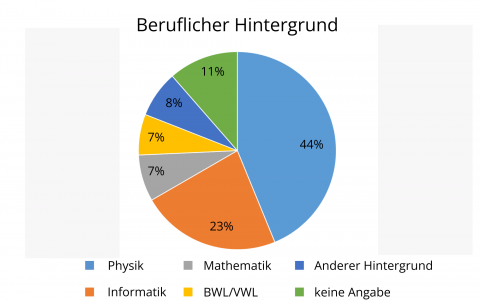
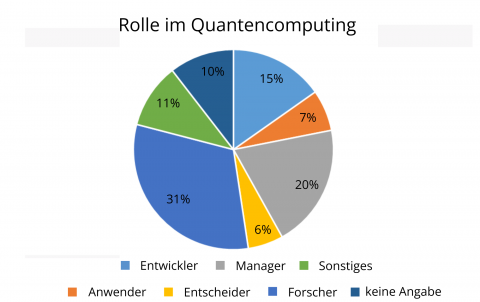
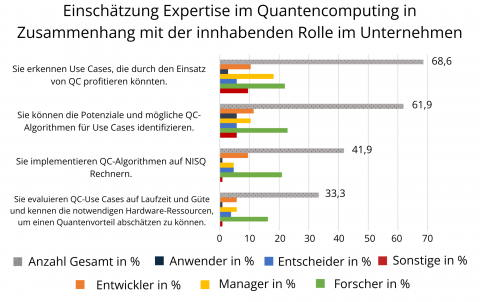
Lack of quantum computing specialists
The skills shortage is currently clearly noticeable across almost all sectors. As a result, it is becoming increasingly difficult for companies to fill their vacancies. Especially in areas that require a high level of specialist knowledge and expertise, it is a challenge to find highly qualified specialists. This also applies to the field of quantum technologies. Quantum computing and quantum research are still young fields of research for companies, and the hype surrounding the topic and related subject areas only became increasingly popular at universities a few years ago. As a result, the number of experts in this field is currently still rather low. But how many experts are there actually across Europe? According to the experts surveyed, over a quarter (25.7%) estimate the number of quantum experts in Europe to be between 101 and 500 (see Fig. 4). In terms of the role held by the respondents, it is mainly researchers and developers who share this view. In contrast, the majority of managers surveyed consider a number between zero and 100 to be realistic. Overall, around half (50.5%) of respondents estimate the number of quantum computing experts in Europe to be less than 1,000. A look at the unfilled vacancies in this area and the growing demand reveals a major shortage of quantum experts. This is also confirmed by the survey participants: over a third (37.1%) of respondents plan to hire one to five new quantum computing specialists within the next three years in order to meet the challenges ahead (see Fig. 5). And as many as 14.3% even plan to hire more than 20 new quantum computing specialists. Only 6.7% do not plan to hire any staff in this area at all within the next three years.
With the increasing maturity of the technology and the realization of commercial applications, the demand for specialists is expected to increase further. It is therefore important to start thinking about training and further education in the field of quantum computing today.
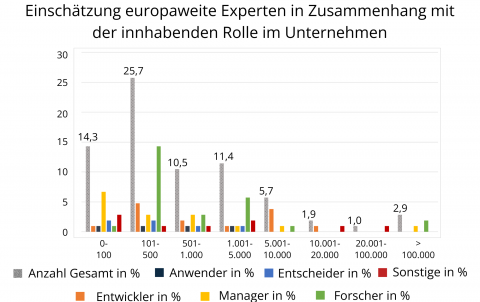
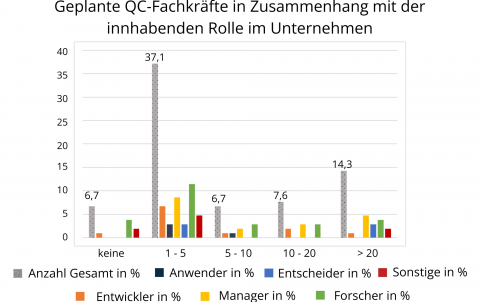
Monetarization models
Quantum computing is still at the basic research stage and it remains to be seen when the technology will be put to beneficial use in industry. Nevertheless, a wide variety of institutions, companies and research facilities are already making intensive use of quantum hardware to perform and test calculations with newly developed quantum computing algorithms. The participants in the study were asked about the monetization model they consider most promising for the implementation of quantum solutions. Of these, 33% believe that a flat rate for code calls in a given period of time is a sensible model (see Fig. 6). 23% of the experts surveyed opted for billing per executed code. It is mainly researchers (9%) and developers (6%) who consider this monetization model to be promising. 18% see the purchase of a contingent of calls as a good model for gaining access to quantum computers. At around 8%, it was primarily managers whose role involves quantum computing who favored this model.
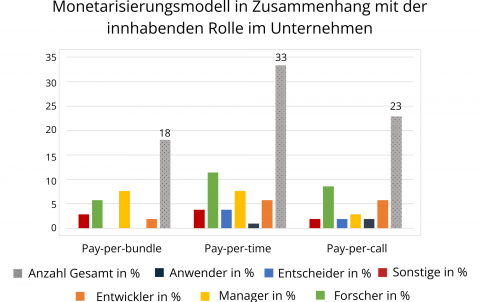
Solution concepts for the processing of QC use cases and their application
With regard to the solution approach, over half (52.4%) of the experts surveyed stated that they focus on the concept when working on QC use cases (see Fig. 8). If the role held in the company is taken into account in this context, the majority of researchers and decision-makers focus on the conception of the solution, whereas the majority of managers surveyed tend to focus on the applications and a slight majority of developers on the services. One explanation for the different preferences of the various professional groups may be that researchers, for example, place more emphasis on the development of the underlying theories. In contrast, managers and developers are interested in the practical implementation of the theories and the benefits behind them.
With regard to the planned use of quantum computing solutions, it can be seen that 36.2% of the experts surveyed develop their solutions for their own company and not as a service provider for external third parties (see Fig. 7).
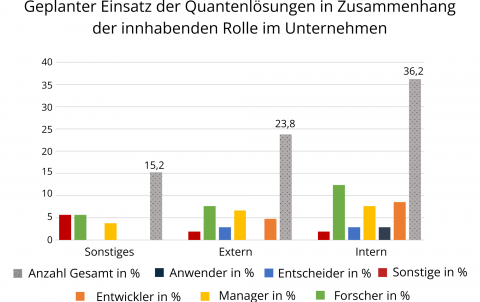
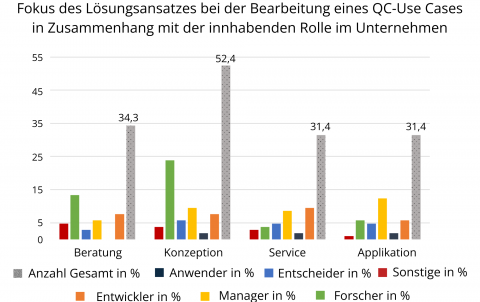
Tools for implementing QC algorithms
Designing and implementing new QC algorithms presents users and developers with enormous challenges. The programming mindset differs significantly from the paradigms and concepts of conventional software and algorithm development. Appropriate tools can support the developer here. With regard to the study, both auxiliary libraries for QC problem formulation and hardware-agnostic software development kits (SDKs) should be emphasized. The former was rated as important to very important by 55.2% and the latter by 47.6% of respondents (see Fig. 9). On the other hand, the NISQ analyzer for identifying suitable QC hardware for a given algorithm (32.4% important to very important) and an automated parameter search (30.5% important to very important) were of less interest. In addition to the tools listed in the study, other tools such as benchmarking libraries and tools for error mitigation were also mentioned.
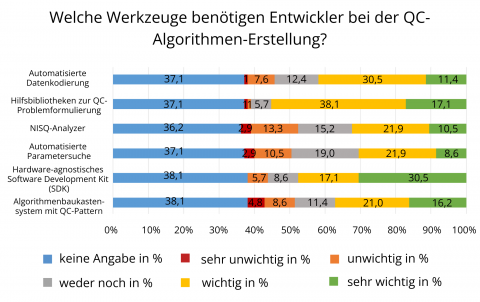
Processing and using implementations
Following the implementation of QC solutions, the focus is on processing and utilization. With regard to the study, 46.6% of participants were in favor of a comprehensive evaluation of the scaling behavior of the implementations (important to very important), while the development of a pricing model, the integration of the implementations into the company’s operational environment or the choice of deployment partners were of secondary importance. In comparison, only 25.7%, 29.5% and 27.7% of respondents respectively voted important to very important (see Fig. 10). This can partly be explained by the fact that quantum computing is still at an early stage and the calculations on quantum hardware are not yet applicable to relevant industrial problem sizes. The number, quality and connectivity of the qubits in current hardware are usually not sufficient to effectively implement particularly extensive or complex tasks. For this reason, the focus is primarily on the design and scaling behavior of the implementation at the current time before price models are developed or deployment in the production environment is tackled.
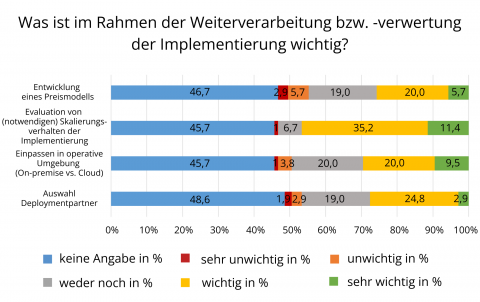
Skills for the implementation of QC algorithms
The programming of QC algorithms requires some more or less necessary basics and skills. In the study, the participants were asked to rate both the essential skills according to their importance (see Fig. 11) and their own expertise in this regard (see Fig. 12). Interestingly, the skills that were predominantly rated as important to very important are reflected in the participants’ own assessment, who are estimated to have a high to very high level of expertise in this area. Particular emphasis was placed on knowledge of optimization procedures (43.8%), understanding of scientific publications (41.9%), basic knowledge (43.8%), and knowledge of the latest research findings (41.9%). publications (41.9%), basic knowledge of linear algebra (40.0%) and quantum physics (38.1%), and especially Python programming skills (42.8%) were particularly emphasized. Correspondingly, own expertise in optimization methods was rated by 25.7%, understanding of scientific publications by 37.1%, basic knowledge of linear algebra and quantum physics by 38.1%, and knowledge of Python programming by 42.8%. publications by 37.1%, basic knowledge of linear algebra and quantum physics by 30.4% and 26.7% and programming knowledge by 31.4% of the participants.
Interestingly, competencies for QC algorithm development in the area of machine learning (ML) and simulation were ranked comparatively lower. Only 21.9% and 25.7% of participants voted for important to very important. The assessment of their own expertise is also relatively low in this regard. Only 19.1% and 21.0% of participants stated that they had great to very great expertise in these areas. This result is unusual in that machine learning and (quantum) simulation are seen as one of the most promising fields of application and research in quantum computing, but both the assessment of the study participants and their stated expertise tend to differ. This can be partly explained by the participants’ respective backgrounds and professional fields. Machine learning and simulation algorithms are themselves comparatively new and highly complex technologies and fields of research and are usually only taught in advanced studies. Consequently, this in turn highlights the need to train future specialists in these fields (ML and simulation) in order to provide a basis for combining them with quantum computing.
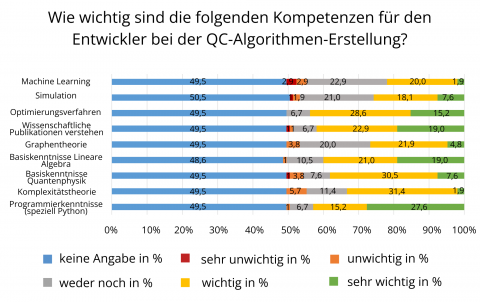
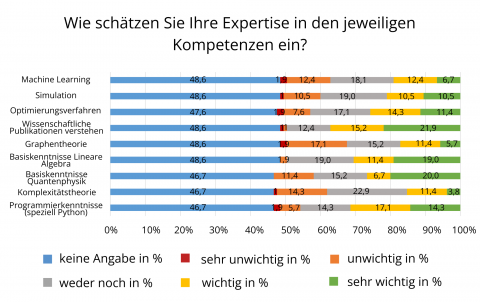
Projects, initiatives and business models to support quantum computing
The measures to promote quantum computing in Germany are discussed below. The participants in the study were primarily in favor of training and further education opportunities (37.2%), alliances such as QUTAC (34.3%), but also access to QC hardware (40.0%) in order to promote QC in Germany. In particular, further training opportunities in the form of learning platforms and programming-related training with various SDKs were also desired. Access to QC applications as a service (23.8%) was considered comparatively less important to very important (see Fig. 13). This is presumably also due to the maturity of QC hardware, which currently offers little added value for companies’ business models and will therefore come into play at a later date. Nevertheless, the early discussion and development of QC solutions in the form of services is essential in order to remain competitive on the software side in the future.
Essentially, the results in Fig. 13 show how important the exchange of knowledge between industry, science and academia is. Funding projects such as PlanQK, which offer an ecosystem, a knowledge platform and low-threshold access to QC hardware, are promoting the topic of quantum computing in Germany and making it easier to get started with this new technology.
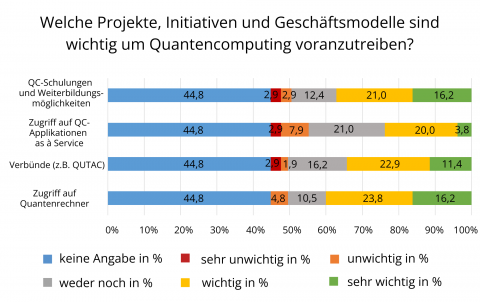
Challenges and difficulties in implementing use cases and algorithms on hardware
The implementation of algorithms and use cases on current QC hardware poses a number of challenges for developers and users. In Fig. 14, various hardware aspects that can impair implementation were ranked in ascending order of influence by the study participants. Looking at the first three rankings per hardware aspect, coherence time, gate accuracy and the number of qubits are particularly noteworthy. Readout errors, hardware topology and communication latency are of secondary importance in the implementation. The results reflect the current level of maturity of the QC hardware, which is still very susceptible to noise, and the associated hurdles in the implementation of relevant QC solutions. Since the corresponding error correction algorithms themselves are very resource-intensive, particularly long coherence times and high gate accuracy are desirable in order to be able to execute relevant and deep quantum circuits on the NISQ hardware and to achieve early added value in algorithm and use case development. Other factors, such as communication latency, which occurs due to the mostly cloud-powered quantum computers, currently play a subordinate role.
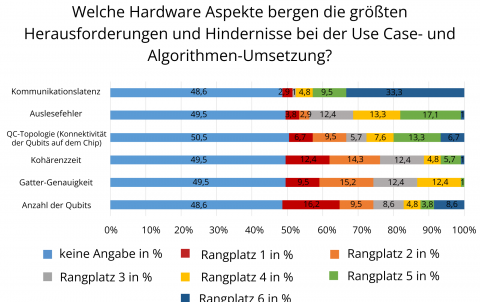
Conclusion
Quantum computing is a rapidly developing technology that uses the characteristics of quantum mechanics to perform complex calculations where classical computers reach their limits. However, current QC hardware is still very limited in hardware resources such as the number of qubits and their connectivity. In order to create added value for the industry right now, the hurdles and challenges of QC must be tackled. In addition to suitable hardware and software, the industry using it also needs competently trained specialists. Appropriate skills and software tools are essential to support users and developers in the implementation of NISQ algorithms. The QC expert study carried out is intended to help identify the basic needs for action and skills in order to jointly prepare and advance both science and industry for the new QC technology.
The experts in the study are primarily in favor of access to QC hardware and mergers and associations, such as QUTAC, in order to promote QC in Germany. However, QC applications as a service, which will become relevant at a later date and at a more advanced stage of hardware maturity, are currently of secondary importance (see Fig. 13). This result is also reflected in the experts’ focus. When developing use cases and algorithms, the majority of respondents are primarily concerned with conceptualization (see Fig. 8) and an extensive evaluation of the scaling behavior of the corresponding algorithms (see Fig. 10) in comparison to productively deployable services and applications. In terms of tools, the majority of respondents are in favor of a hardware-agnostic SCD in order to be able to develop uniform algorithms on the software side in the heterogeneous QC hardware landscape and to avoid the need to acquire different programming languages and SDKs. Help libraries for QC problem formulation are also desirable in order to simplify access for non-specialist personnel (see Fig. 9). Finally, it should be mentioned that the creation of extensive training and further education opportunities for new specialists is essential in order to counteract the shortage of specialists for the new QC technology. This can also be seen in Fig. 4, where the majority of the experts surveyed estimate the number of QC specialists with the relevant expertise to be less than 500 across Europe.
Authors:
Christoph Roch: Research Associate bei Department of Mobile and Distributed Systems at Ludwig-Maximilians-Universität (LMU) Munich
Christoph Roch is doing his PhD at the LMU Munich at the Chair of Mobile and Distributed Systems with a focus on optimization problems and their solvability by quantum computing. Additionally the computer scientist is a member of the Quantum Applications and Research Lab (QAR-Lab) and contributes his knowledge to various industrial projects, research and teaching.
David Niehaus: COO bei Anaqor, PlanQK
David Niehaus is the Co-Founder and COO of Anaqor as well as community manager of the PlanQK research project, which is a flagship initiative for the use of quantum computing in Germany and is supported by the Federal Ministry for Economic Affairs and Climate Action. Having completed a dual Master’s degree program in Berlin and Toulouse, David has gained experience working in various positions within the aviation industry across the US, France, Great Britain, and Germany. Prior to his role at Anaqor, he served as the Complexity Management Lead for Germany at consulting firm umlaut, where he successfully led several projects with clients from diverse industries to set up successful product development processes.
Angelika Debes: Research Associate bei Ludwig-Maximilian-University Munich
Angelika Debes completed her Master’s degree in Human Resource Management and has been working as a research assistant in the QAR Lab at the Chair of Mobile and Distributed Systems at LMU Munich since 2020.
Quantum summit 2023 in september
Jonas Stein, Research Associate of the QAR Lab at LMU Munich will provide valuable insights into the current QC research projects - especially on the highlights from the Quantum Computing Optimization Challenge.
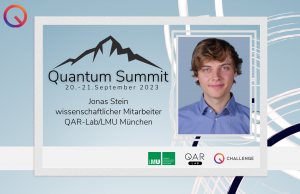 (Jun. 13, 2023/Munich) Quantum computing isn’t just a future trend anymore – it’s here to stay and promising to solve both local and global problems in various fields that are beyond the reach of today’s computers. In September 20th-21st, the Quantum Summit will take place in Berlin, Germany. It will bring together a wide range of experts from the research community, as well as decision-makers from business and government, to share important insights in the field of quantum computing. Jonas Stein, Research Associate of the QAR Lab at LMU Munich will provide valuable insights into the current QC research projects – especially on the highlights from the Quantum Computing Optimization Challenge.
(Jun. 13, 2023/Munich) Quantum computing isn’t just a future trend anymore – it’s here to stay and promising to solve both local and global problems in various fields that are beyond the reach of today’s computers. In September 20th-21st, the Quantum Summit will take place in Berlin, Germany. It will bring together a wide range of experts from the research community, as well as decision-makers from business and government, to share important insights in the field of quantum computing. Jonas Stein, Research Associate of the QAR Lab at LMU Munich will provide valuable insights into the current QC research projects – especially on the highlights from the Quantum Computing Optimization Challenge.
The Quantum Computing Optimization Challenge is a practical course initiated by Prof. Dr. Claudia Linnhoff-Popien, head of the Chair of Mobile and Distributed Systems at LMU Munich. It took place for the first time in 2020 and has been an integral part of the curriculum ever since. This practical course teaches the ability to model optimization problems for quantum computers, as well as an introduction to practical work with existing quantum computers. Four computers are currently available for this purpose in the QAR Lab: IBM Q System One, Rigetti Aspen-11, Fujitsu DAU, D-Wave Advantage. In cooperation with well-known partners from industry, tasks with strong relevance for practical applications are assigned each semester. The students have the opportunity to execute and compare one task on two computers. In the summer semester 2023, it takes place for the 5th timeIn the QC Optimization Challenge, use cases in areas of optimization, machine learning and simulation are on the agenda.
You can look forward to an exciting presentation in September at the Quantum Summit.
For more information about the Quatum Summit, click here.
Kick-off project launch QCHALLenge
LMU Munich's QAR-Lab is leading the QCHALLenge quantum computing project funded by Bundesministerium für Wirtschaft und Klimaschutz - the companies AQARIOS, BASF SE, BMW AG, SAP SE and Siemens AG will be partners.
(Dec. 01, 2022/Munich, Germany) On December 1st, all project partners met for the first time to advance the common vision to achieve a quantum advantage in the field of production and logistics. With the project QCHALLenge optimization problems especially in these areas should be solved using existing quantum computing (QC) hardware. For this purpose, algorithms, concepts and tools are being developed that will enable the industry to use QC in a multi-sector and low-threshold implementation. The focus will be on the automated integration of QC into existing solutions, the development of generic quantum SDKs and the expansion of know-how in the application and development of QC solutions.
Project partners and their roles:
The project partners are represented by technology experts, software manufacturers and the user industry, in order to optimally combine their know-how from as many different perspectives as possible. In this context, LMU Munich as consortium leader takes the lead of QCHALLenge and contributes its many years of experience in the field of QC software through the Quantum Applications and Research Laboratory (QAR-Lab). Since 2016, the QAR-Lab has already been doing research in the field of quantum computing and working on numerous QC industry and funding projects. Among other things, this has resulted in the middleware UQO for the hardware agnostic use of QC. AQARIOS, founded in 2021 as a spin-off of LMU Munich, especially focuses as a software and technology partner on the development and implementation of QC solutions. The companies BASF, BMW, SAP and Siemens represent the user perspective in the consortium. They are advancing QC in their business areas and have already been able to build up their know-how through numerous projects in the field of QC. Since QCHALLenge is specifically focused on the domains of production and logistics, this results, besides other topics, in use cases for the optimization of supply chains and warehouses as well as the application of QC in automation.
Goals of QCHALLenge:
QCHALLenge focuses on the integration of QC into existing software workflows. In particular, the project targets the optimization of methods in machine learning and simulation. In doing so, the consortium aims to achieve the following goals at the end of QCHALLenge:
- the development of generic programming tools and environments,
- the creation of user-friendly, engineering applications such as optimizations for specific use cases,
- the development of software solutions for the integration of conventional computers and QC systems (hybrid quantum software),
- the configuration of strategies and methods for the structured analysis of user-side problems regarding the target-oriented application and development of QC solutions.
Realization and outlook:
To bring QCHALLenge to success, the focus is on four main strategic cornerstones: In the first step, the goal is to identify suitable use cases and to work out a requirements analysis. The focus here is on which use cases are relevant in practice and also bring a possible quantum advantage. Particularly, the comparison to classical baselines will be considered and a prediction about the probability of a quantum advantage will be made. In the second step, general architectures are developed and finalized for integrating various software tools into existing software solutions. The focus here is on the interface definition for existing software solutions. In the third step, the first prototype software tools and hybrid use-case algorithms will be used. In the end, these prototypes can be further developed into a technically mature software tool. The software tools and algorithms are to be developed in such a way that they can be used operationally after the project period and made accessible to medium-sized companies primarily.
Quantum computing is the next technology that promises the potential for disruptive innovation. It offers breakthrough possibilities for solving problems that are unsolvable in practice on classical computers. It is hard to predict the opportunities that quantum computing, and quantum technology as a whole, will provide for humanity in the future. There are numerous fields of application in which it could be used. QCHALLenge starts an exciting project in the field of quantum computing, which all project partners are highly looking forward to. We can’t wait to see where this journey will take us.
5th QC Practical Course Kick-off with BASF, BMW and Siemens
Kick-off event with BASF, BMW and Siemens: 16 LMU students implement use cases on four quantum computers: IBM Q System Two, Rigetti Aspen-M-2, Fujitsu DAU and the D-Wave Advantage in the QC Optimization Challenge Practical Course.
The practical course will provide the ability to model optimization problems for quantum computers, as well as an introduction to practical work with existing quantum computers. Four computers are currently available in the QAR Lab for this purpose: IBM Q System Two, Rigetti Aspen-M-2, Fujitsu DAU, D-Wave Advantage.
In cooperation with our industry partners BASF, BMW Group and Siemens projects with high relevance for concrete applications are calculated by our students on quantum computers in this semester. With the three use cases (1) Financial Forecasting (BASF), (2) Drive Train Optimization (BMW) and (3) Train Routing (Siemens), the students will explore the main applications of quantum computing: machine learning, simulation and optimization.
We are pleased to make this possible for the 5th time and are looking forward to the results at the end of this semester.
Digitale Welt Convention – DIGICON 2023
The digital city of the future
New opportunities for your business model
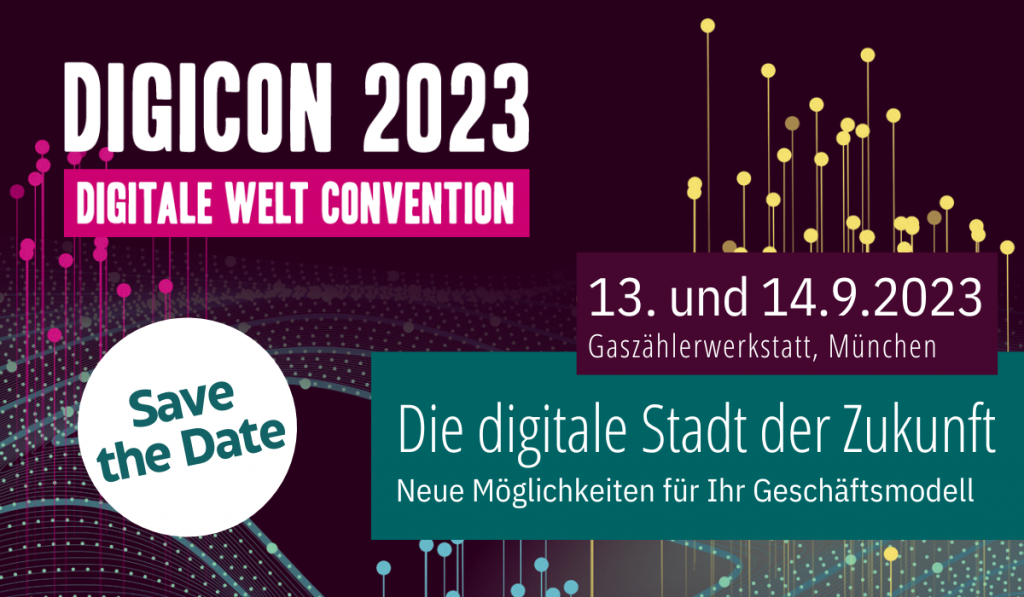
“The digital city of the future – New opportunities for your business model” – This is the title of this year’s DIGICON, which will take place on September 13 and 14, 2023 at the Gaszählerwerkstadt in Munich.
In the future, cities will be even more digital and connected. But will such cities of the future become increasingly efficient and sustainable thanks to modern technologies and innovations, or are they also hiding unknown challenges? This year’s DIGICON 2023 will address the numerous new opportunities for business models – from the development of smart city solutions and opportunities for autonomous services, to the networking of devices, sensors and data and development of environmentally friendly ideas for harmony between the city and nature. The digital city of the future brings numerous opportunities for companies to invest in new digital approaches at an early stage and benefit from new impulses.
DIGICON is the annual event of Digitale Stadt München e.V. and a major conference on digitalization topics in the Munich Metropolitan Region. Since 2016, it has brought together renowned experts and top decision-makers from industry, politics and research in Munich to exchange views on digital opportunities for the future. In recent years, the focus has been on topics including quantum computing, artificial intelligence, machine learning, autonomous driving and digital skills. DIGICON is designed to give companies the opportunity to exchange ideas on digitization topics and learn from each other.
Prof. Linnhoff-Popien wins award "Best Bachelor Lecture" for
"Computer Architecture", which also introduces quantum computing
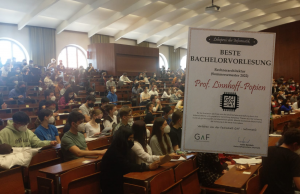
Once a year, the LMU mathematics, physics and computer science department evaluates among the students which lecturers and which tutors have shown outstanding commitment to teaching. The “Golden Sommerfeld” for the physics department has already been awarded since 2017. In 2022, the “Golden Carathéodory for the Department of Mathematics and the “Teaching Award of Computer Science” are being introduced. The aim is to honor outstanding courses and tutorials and to indicate them as a good example.
On Thursday, January 12th, 2023, Prof. Dr. Linnhoff-Popien was awarded the “Teaching Prize of Computer Science 2022” for the “Best Bachelor Lecture”. Nearly 10,000 students of the group Active Student Bodies Physics, Mathematics and Computer Science from the last winter semester 2021/2022 and summer semester 2022 voted and agreed: Prof. Dr. Linnhoff-Popien’s lecture “Computer Architecture” was particularly outstanding.
What characterizes a good course? Prof. Dr. Linnhoff-Popien was asked directly about her teaching in the summer semester 2022 and she reports as follows:
“It was April 2022, a tumultuous time regarding Corona, and there we were expecting 700 to 800 students from 16 different study paths, who enrolled in the computer architecture course. The booked lecture hall had 600 seats. At that time, I had met both students who craved face-to-face lectures and students who had family members who belonged to risk groups and were strongly advised to avoid close contact. For these scenarios, we created a flexible lecture concept accordingly, and the following three aspects were important to me:
WHAT – According to the curriculum, only classical computers and computing methods are taught in computer architecture. In addition to the classical approaches, I included an introduction to quantum computing (QC) as an optional compulsory module. Those who wanted to learn QC could do an exercise on it in the exam. Those who had no interest in QC alternatively programmed assembler as an exam task. Remarkable 96% of the students studied QC additively to the classical material.
HOW? – I put great importance on keeping the lecture clearly structured and easy to understand. Afterwards, each student had the opportunity to intensify the lecture content in tutorials, in which exemplary exercises were calculated. Then they could prove their knowledge by calculating and presenting weekly exercise sheets in order to receive bonus points. Our team of 11 tutorials corrected an average of 1,800 exercises per week. Hundreds of exams were corrected within 48 hours after they were written. My big thanks go to the incredible team of three teaching assistants and practice guides who were very engaged in providing individual attention to each student and answering each question that comes up one at a time.”
The award certificate recognizes the lecture as follows:
“Best Bachelor Lecture – Computer Architecture (Summer Semester 2022) – Prof. Linnhoff-Popien – In the evaluation, the best Bachelor lecture was characterized by its passionate and sympathetic communication of complex topics. The lecture was praised as well structured and well arranged. Some students described the lecture as the best of their lives.
Link:
https://gaf.fs.lmu.de/lehrpreise/lehrpreisinfo
The joy of the award winners last Thursday was very great and the mood exuberant. We can be curious which lectures will be nominated next year by the body of a department of mathematics, physics and computer science of the LMU.
Digitale Welt Convention – DIGICON 2022
“Artificial intelligence in business and society:
How do we achieve fairness, trust & data excellence?”

DIGICON took place for the 7th time on November 16. This year, the big digitization event focused on the topic “Artificial intelligence in business and society: How do we achieve fairness, trust & data excellence?”
DIGICON is the annual event of Digitale Stadt München e.V. and an important conference on digitization topics in the Munich metropolitan region. For seven years, it has brought together more renowned experts and top decision-makers from industry, politics and research to exchange views on digital opportunities for the future. In recent years, the focus has been on topics including quantum computing, machine learning, autonomous driving and digital skills. DIGICON is designed to give companies the opportunity to exchange ideas on digitalization topics and learn from each other.
This year, DIGICON once again took place onsite and live in Munich. Many decision-makers and experts from the digitization industry exchanged ideas about fairness, trust and data excellence of artificial intelligence and showes practical examples. The event took place until late at night with a networking evening in the historic Villa Flora in Munich.
More than 20 speaker plus many award participants presented use cases, latest research results or newest products and insights on AI. The networking slots provided a great opportunity to stick heads together and exchange new ideas or meet new people.

